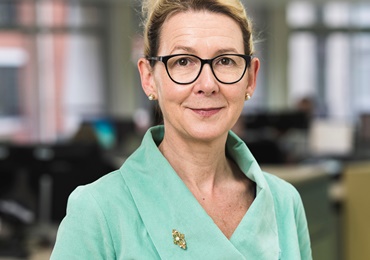Changing how we assured education standards to meet the challenges of COVID-19
02 September, 2021 by Manjula Das
As Head of Education and Quality Assurance (EQA) at the GDC, I work closely with education providers and other key stakeholders to ensure the quality of education and training for those working to become a member of the dental team. During the pandemic, we have worked with key stakeholders to produce joint updates for students and those in training posts in the UK on arrangements for dental education and training, while measures were in place to control the spread of COVID-19. Ultimately however, our duty remains to ensure that new graduates fulfil the required learning outcomes in order to register with us.
Different challenges across the UK
The pandemic has no doubt challenged the ability to gain the required amount of clinical experience necessary to ensure that new graduates have the depth and breadth of experience that we expect and require.
Experiences have varied between providers and indeed between countries. At the beginning of the year, dental education providers in England, Wales and Northern Ireland, responded to our survey saying they were confident that, with support, including substantial funding, they would be able to graduate between 80–90% of their final students in the 2020/21 cohort. The system-wide approach taken in Scotland led them to postpone all BDS graduations this summer, with providers working together to develop meaningful programmes and additional qualifications for those undertaking an extra year of study.
Adapting our QA process
Our priority remains that new graduates must be at the level of safe beginner. With the challenges caused by the pandemic, we needed to review and adapt our QA process to ensure it remained fit for purpose.
In preparation for the QA process development, my team spoke with education providers from all dental professional groups and identified BDS and hygiene and therapy providers as being at greatest risk from the consequences of the pandemic and thus we focussed most of our QA activity on these providers.
To ensure that new graduates are of the expected standard, we developed a bespoke, risk-based quality assurance process, which focussed on targeted evidence requests and analysis from all BDS and hygiene and therapy education providers. We’ve shared the outcomes of this work
on our website.
Now, at the end of the 2020/21 academic year, we see a very positive outcome with roughly 97% of BDS students from England, Northern Ireland and Wales graduating, above the initial expectation. We also surveyed the remaining dental professional groups in May to check there were no concerns and none were identified.
A catalyst for change
The pandemic has served as a catalyst to progress joint areas of work that have long been discussed. Working closely together, dental schools, postgraduate deaneries and the GDC have developed a feedback mechanism from postgraduate training to undergraduate providers and the regulator, which will start in the 2021/22 academic year. This will enable us all to better understand, support and develop new graduates.
The pandemic remains part of our lives, and we must continue to ensure that those students most affected have no detriment to their ability to treat patients safely and competently upon graduation. We are revising this year’s process with feedback from stakeholders, to ensure that the 2021/22 graduating cohort are also of the required standard, with dental care professionals being monitored in the next academic year.
We acknowledge the significant work of all the key stakeholders involved in maintaining the quality of education and training during these challenging times, especially the dental schools, postgraduate deaneries and of course the students. We wish the new Foundation trainees every success going forward.
 eGDC
eGDC























